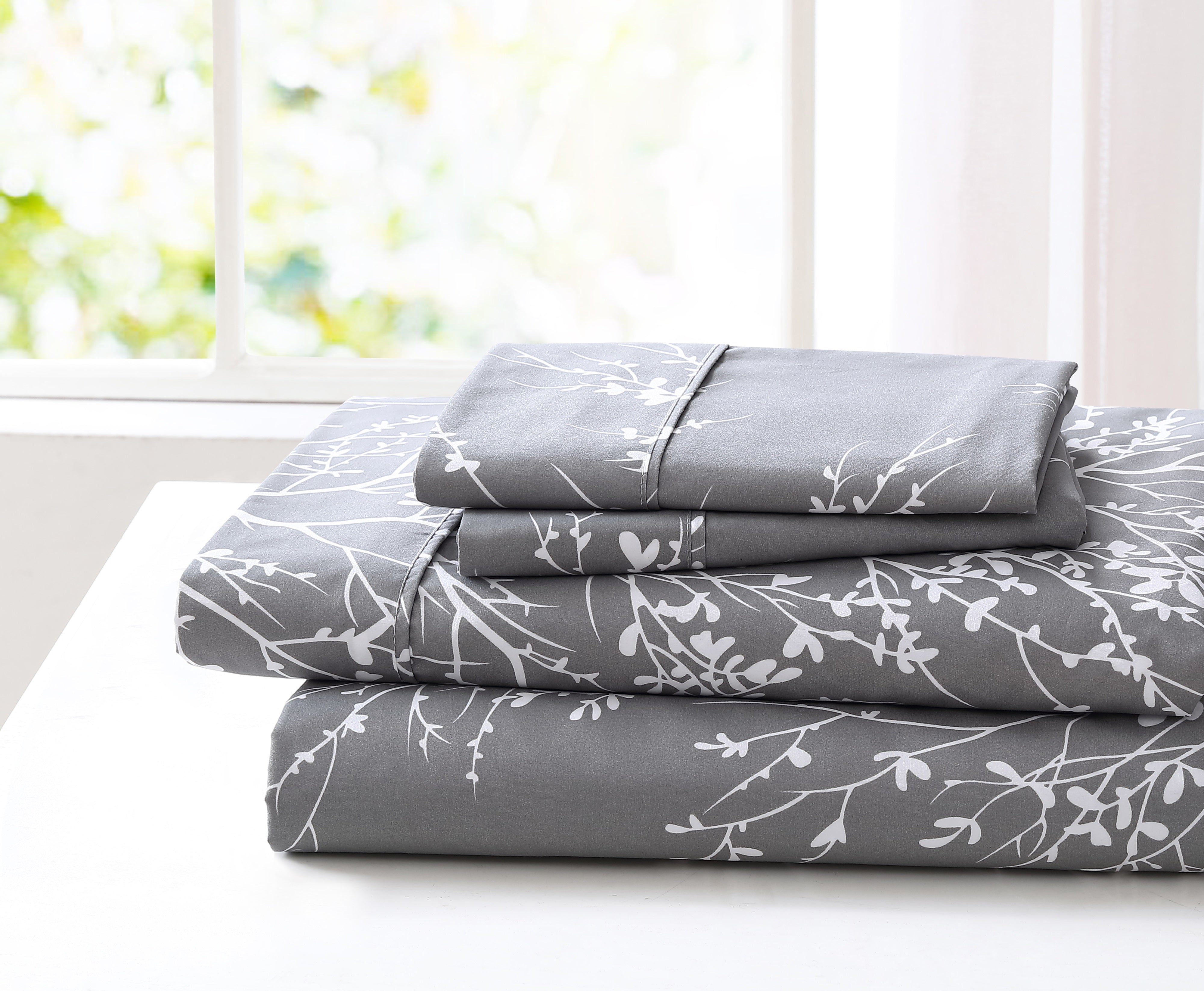They look and sound luxurious (and have a passionate following), but linen sheets have a much different feel—and are a little more high maintenance—than cotton; here’s what you should know before buying your first set of linen sheets.
The Appeal of Linen Sheets
Just thinking about linen sheets conjures an image of airy, breezy fabric—possibly even the most comfortable sheets ever—blowing in the wind, hung out to dry on a clothesline at a picturesque country home. As dreamy as they sound, linen sheets are quite different if you’re used to sleeping on other fabrics, such as cotton.
What is Linen?
Linen is made from the natural fibers of the flax plant, primarily grown in Europe. Belgian linen, in particular, is considered among the highest quality types of linen. “There is a reason linen sheets are passed down from generation to generation and treated like heirlooms: The quality is incredible,” says Christina Samatas, co-founder of Illinois-based interior design firm Park & Oak.
Benefits of Linen
Linen is renowned for being cool to sleep in, says Cathy Marriott, director of bed linen manufacturer Dormitory. “When linen comes into contact with your skin, nodes in the length of the fibers absorb perspiration, then swell and release the moisture into the air, thus creating a fabric that’s self-cooling,” she says. While linen sheets are ideal for summer months and hot climates for this reason, they’re versatile for any season or climate thanks to their ability to naturally regulate temperature. Samatas suggests pairing linen sheets with a faux fur blanket during cooler months.
Additional Advantages
Another great thing about linen sheets is that they are virtually lint-free and hypoallergenic. They also can help prevent bacterial growth, Marriott says.
How to Care for Linen Sheets
“Think of linen sheets like a nice linen dress: [The fabric] will soften over time, but never be as soft as cotton,” Samatas says. Like any bedding, you should wash linen sheets weekly, in cold water with a mild detergent, and dry on low heat (or even better, on a line). Avoid fabric softeners that contain silicone, which can coat the linen fibers and hinder their ability to absorb moisture, and remove linen sheets from the dryer promptly to minimize wrinkles.
For a pristine look, Marriott has a pro tip: Roll your freshly washed, slightly damp linen sheets and put them in a plastic bag in the freezer for two hours. Steam them with a very hot iron, and the linen will be silky smooth when you put them away in the linen closet or use them to make the bed.
Store linen sheets in a dry, well-ventilated area, and avoid putting them in plastic bags or boxes that can cause permanent yellowing. If you’re storing them long-term, wrap them in white cotton, muslin (like an old pillowcase), or acid-free tissue paper first.
Who Should Try Linen Sheets
Hot sleepers will appreciate the cooling benefits, and allergy sufferers may find relief from symptoms by tucking into a bed of linen sheets at night. Since linen is heavier than cotton, it might not suit someone who doesn’t like extra weight on them while they sleep.
Many linen sheets on the market are “stone washed” or “enzyme washed,” which means the softening process has been accelerated to give them an aged feel and appearance. Stone washing involves washing them in huge drums with pumice that beats against the fabric, while enzyme washing uses chemicals—so if you have sensitive skin, you may want to avoid these.
Longevity of Linen Sheets
Though they might begin to show signs of wear after three to five years, with proper care, linen sheets can last several decades. Before you buy, examine the weave of the sheets: A very loose weave with open spaces between threads won’t last as long, says Marriott. Most of the time, the more expensive set will denote higher quality.
Also, take careful note of the wording on the packaging. “Often what’s being marketed as French or Belgian linen is actually referring to the origin of the flax, and the linen itself is being woven and made in China,” Marriott says.
The Bottom Line on Linen Sheets
As with any luxury item, linen sheets are an investment; but as long as you take care of them, the many years of use you’ll get may justify the cost. Keep in mind that linen has a very different feel for sleeping than a fine cotton percale or sateen, so it comes down to personal preference: Linen sheets will never have the smoothness that you might be used to with cotton sheets, so best thread count for sheets obsessives beware!



Leave a comment
All comments are moderated before being published.
This site is protected by hCaptcha and the hCaptcha Privacy Policy and Terms of Service apply.